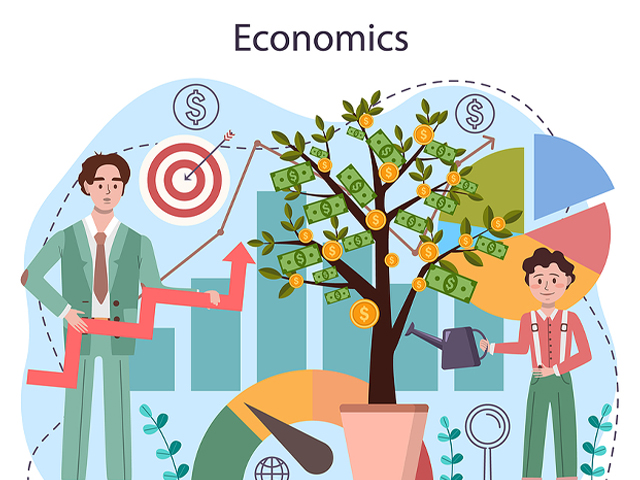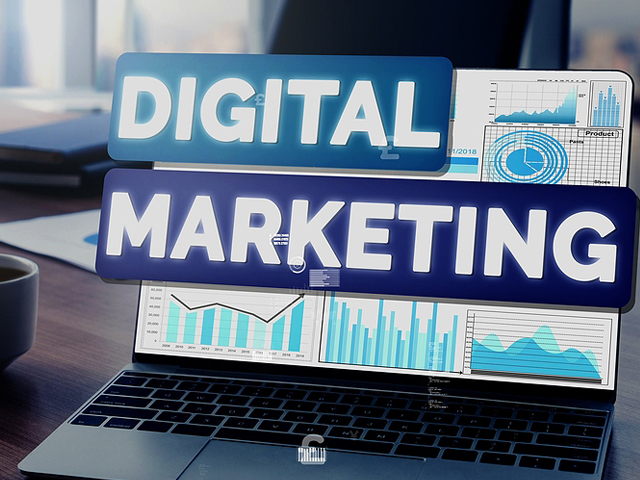
Economics affects every aspect of our lives. The subject is much broader than people realize. The basics of Economics studies human behavior and how we utilize it every day in our lives. There is never a shortage of jobs pertaining to economics. This degree will always be vital as our need for management skills, scientific skills and consulting continues to expand.
Your Master's Degree in Economics
The world is practically your oyster if you have a master’s degree in economics. Many possibilities are available within our changing job climate. Having a master’s degree will put you in the driver's seat.
There are options in the public sector, academic research, non-profit and private sectors available. You will have the skills to acquire a variety of positions. There will be opportunities for advancement within companies.
After you have your degree, the job market is quite expansive. Some graduates prefer the non-profit realm, while others set their sights on Wall Street.
You can work with underdeveloped nations to help them expand and grow. Perhaps, you would like to work in a public field and contribute to the economy in your own backyard. For successful graduates, jobs range from business, law, banking, anthropology, government and more.
The Top 10 Most Prolific and Prosperous Economics Professions
1. Data Scientist
Data scientists spend no time looking under a traditional microscope. They rely on their skillset to collect, interpret and publish data. The data is utilized to forecast economic decisions.
Companies rely on this data to help the financial aspect of their business along with analysis productivity. These metrics are taken in the short and long term to review how successful their choices were.
This will help the company decide which direction they want to take in the future. People with a master’s degree in Economics are sought after by numerous industries including finance, IT departments, healthcare, marketing and retail.
2. Economist
Becoming an Economist may be an excellent career choice if you have above-average inductive and deductive reasoning skills. This role looks at how a group utilizes raw materials, land, water and labor to suit their needs. They collect and review this information to determine market trends. This information helps economists develop a variety of economic models.
3. Actuary
Having a Master's in Economics can lead to one of the fastest-growing careers as an Actuary. By 2030, this job is projected to grow by eighteen percent. An Actuary takes the data that is applied to a certain situation and analyzes the chance an event will occur in a specific place.
This information is particularly useful when trying to determine where a Natural Disaster may occur.
4. Securities Trader
Being a securities trader is a fast-paced profession that necessitates proficient communication and writing skills. Individuals and companies rely on a Security Trader to sell and invest in securities.
The Trader must rely on their economic knowledge to analyze the trades they are responsible for conducting. There can be a lot of pressure involved since how these trades are managed will determine overall profitability and success.
5. Pricing Analyst
A Pricing Analyst combines economic data with market research to decide what the most feasible price can be charged on services and products. This job requires a balance between offering a company the largest profit margin without turning customers away. One of the main skills for this job is having a high level of organization due to all of the tasks required.
6. Lawyer
Being a lawyer with a degree in Economics is a highly sought-after position. Legal work often focuses on finding patterns and irregularities in specific details. A lawyer with a degree in Economics is considered invaluable. They may additionally handle many financial and business duties in this role.
7. Statisticians & Mathematicians
Did you know that a Mathematician is responsible for solving issues in healthcare, business and engineering? They interpret numerical data and work alongside additional professionals to determine the outcomes of various projects. These applications are vital to a variety of industries. It is estimated that by 2030, these fields will grow by 33%.
8. Budget Analyst
Do you love math and have stellar communication skills? These are two essential characteristics of this job. A Budget Analyst evaluates various budget proposals depicting how funds are specifically allocated to a project.
They run cost-benefit analyses, spending needs, funding requests and budget proposals to establish a plan. A Budget Analyst utilizes these skills within statistical modeling to convince management to approve their requests.
9. Management Consultant
A Management Consultant serves as one of the most essential employees for a private business. They are relied on heavily by business owners to analyze economic trends and business trends to maximize their profits and lower company risks.
10. Financial Manager
Financial Managers watch market trends to help a business expand its profits while lowering its costs. This is a standard position that requires an undergraduate degree at the minimum.
However, many employers are seeking employees with a master’s degree and someone who has worked for at least five years in the financial field. Until the beginning of 2030, job opportunities in this field are estimated to grow by 15%.
Benefits of an Economics Career
Would you enjoy gaining new insights into various living conditions? Items including healthy food, clean water, disease control and education can be dramatically affected by the value of goods and services that are manufactured in one year in a country.
Are you curious about how the finances of the world fit into daily life? Economics truly affects every aspect of our daily lives. You will understand why price changes occur on common items or why your taxes increase from time to time.
Would you prefer to view the world in a different manner? An economist relies on evaluating trends to come up with solutions. Everything from a person's purchasing behavior can be determined by something like a simple tax change. You will notice this trend while others will pass it by and not see it.
Economic analysis can provide clarity regarding human behaviors and enable humanity to utilize its depleting resources in new and creative ways.











